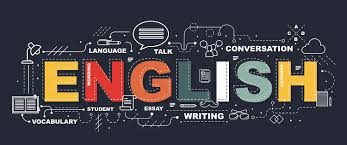
This is a continuation of previous courses on English language for scientists. It focuses on improving both oral and written skills.
Learning outcomes
Upon completion, successful students will be able to:
- deliver an oral presentation about a scientific topic to colleagues, in meetings, conferences, etc
- present a scientific product orally
- translate a simple technical document
- understand lectures and conferences given in English
- understand and write a short scientific article
Detailed LOs:
Oral comprehension
1.1- Understand a simple technical conversation or presentation
1.2- Understand technical instructions
1.3- Understand simple mathematical expressions
Written comprehension
2.1- Read an elementary technical text
2.2- Recall informations in a simple technical document
2.3- Understand simple technical instructions
Oral expression
3.1- Perform a simple technical presentation
3.2- Convey scientific and technical information
3.3- Summarise or rephrase orally an elementary technical document
Written expression
4.1- Write a simple report of a technical document
4.2- Describe a simple technical object
4.3- Write a simple technical manual
- Enseignant: Kamel KHELIFA KERFA

Concrétiser les connaissances acquises en cours de physique des matériaux par des travaux pratiques
- Enseignant: Houari MOHAMMED

En mécanique des fluides, un écoulement est la modélisation du déplacement d’un fluide. On distingue généralement deux types d’écoulements : les écoulements laminaires et les écoulements turbulents.
Un écoulement est caractérisé par la donnée de ses champs vectoriels et scalaires, comme son champ de vitesses, son champ de pression, ou son champ de température.
- Enseignant: fares redouane
La science des matériaux repose sur la relation entre les propriétés, la morphologie structurale et la mise en œuvre des matériaux qui constituent les objets qui nous entourent.
- Enseignant: Khedidja Talbi
This practical work provides a complete treatment of electronic component technology, offering indispensable information for students working with electronic components.
Reinforcing theoretical knowledge: Practical work allows students to visualize and manipulate the components and circuits
Acquiring practical skills: Students learn to use various measurement instruments (multimeter, oscilloscope, function generator, etc.), solder components, and assemble circuits.

- Enseignant: Amel Slamani